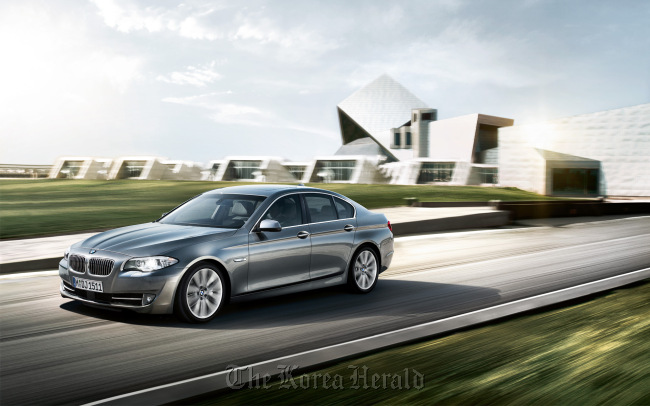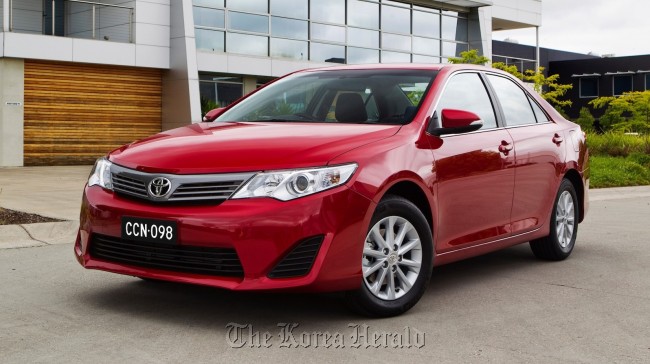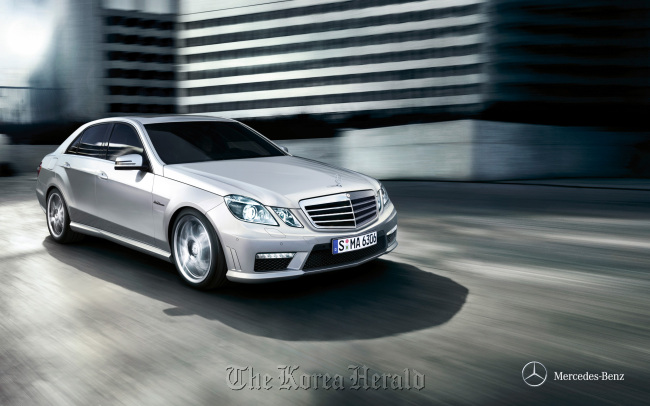The nation’s import car market is enjoying a heyday.
Foreign carmakers, largely led by the popularity of German brands have continued posting record sales here in recent years.
This year their combined market share surpassed a milestone 10 percent in Korea where Hyundai and Kia vehicles dominate almost 80 percent of the market.
Their car sales increased more than 20 percent to reach some 130,000 units this year. Next year the sales figure is expected to reach some 150,000.
One of the reasons behind such a strong performance is the enhanced role of their Korean units, especially the CEOs, industry watchers say.
“In the past, Korean importers used to be responsible for car sales. But with the market potential growing, carmakers have started allowing more power to local units and CEOs,” said Yoon Dae-sung, executive managing director of the Korea Automobile Importers and Distributors Association.
“Regardless if they are Korean or not, headquarters will dispatch more high-profile figures to lead the lucrative Korean operation in the coming years.”
 |
BMW 520d |

BMW, Toyota success
BMW Korea CEO Kim Hyo-joon took office at the German premium carmaker 10 years ago. The 55-year-old leader led BMW to become the top selling foreign car brand for three consecutive years.
BMW and Mini vehicles sold 32,247 units in 11 months of this year, up 23 percent from a year ago. Their combined market share amounted to 27 percent among import brands.
Kim also succeeded in bringing BMW’s fourth driving center ― the others are in Germany and the U.S. where the carmaker produces cars ― to Incheon, with the opening scheduled in March.
Toyota Korea’s Hisao Nakabayasi also impressed Korean customers this year, leading the successful revival of its vehicles after sluggish sales hit hard by last year’s earthquake in Japan.
The CEO, fluent in Korean, is known for his affection for Korea and its culture and has carried out diverse efforts to offer localized services and marketing activities.
The U.S.-made Camry sedan, taking advantage of the more favorable exchange rate here than in Japan, made a successful debut this year.
 |
Toyota Camry |
 |
Mercedes-Benz E300 |
The midsize car sold more than 5,000 units this year, becoming the third highest selling model next to BMW’s 502d and Mercedes-Benz’s E300.
Park Dong-hoon of Volkswagen Korea also contributed to driving up car sales more than 40 percent over the past year. The carmaker seeks further growth through planned launches of the compact Polo and new Golf next year.
New comers
Audi Volkswagen Korea recently named Johannes Thammer as the new Korean representative of Volkswagen Group, seller of the Audi, Volkswagen and Bentley brands.
Thammer, 57, who also serves as managing director of Audi Korea, pledges to strengthen after-sales services for Korean customers citing his career as global after-sales chief of the German luxury brand.
He is said to have knowledge about the Korean market as he served diverse positions, including sales division president at Audi China.
Chrysler Korea, which is finalizing the reentry plan for the Fiat brand early next year, appointed Pablo Rosso, former India commercial area manager of the Fiat Chrysler Group, to fill the CEO position that had been vacant for five months.
The new CEO, who was until recently in charge of a Fiat-led joint project in India, is expected to support the launch of the flagship Fiat 500 in Korea.
Mercedes-Benz is currently looking for a new Korean chief after the former CEO Thomas Urbach, 50, died late last month on a business trip to Germany.
His abrupt death came when the carmaker was seeking to expand its market share, currently outpaced by its rival BMW.
Despite some pending issues such as the launch of the smallest A-Class late next year and the construction of a new parts distribution center by 2014, a new chief could come as early as in March.
“Considering the importance of the Korean market, it would take some time for the headquarters to appoint a new chief,” said an industry source, declining to be named.
Diehard competitionCompetition among foreign car brands is expected to get fiercer than ever next year.
The German brands plan to step up efforts to maintain strong dominance, while Japanese and U.S. carmakers will renew their offensives by taking advantage of the Korea-U.S. free trade pact with their made-in-U.S. vehicles.
Hyundai Motor Group also prepares for a marketing war to strengthen its dominance in Korea as it plans no key launches globally next year.
“With smaller carmakers, such as GM Korea and Renault Samsung Motors, heating up the market, foreign carmakers will face a diehard competition next year,” said Yoon of the KAIDA.
By Lee Ji-yoon (
jylee@heraldcorp.com)











![[Today’s K-pop] Blackpink’s Jennie, Lisa invited to Coachella as solo acts](http://res.heraldm.com/phpwas/restmb_idxmake.php?idx=644&simg=/content/image/2024/11/21/20241121050099_0.jpg)